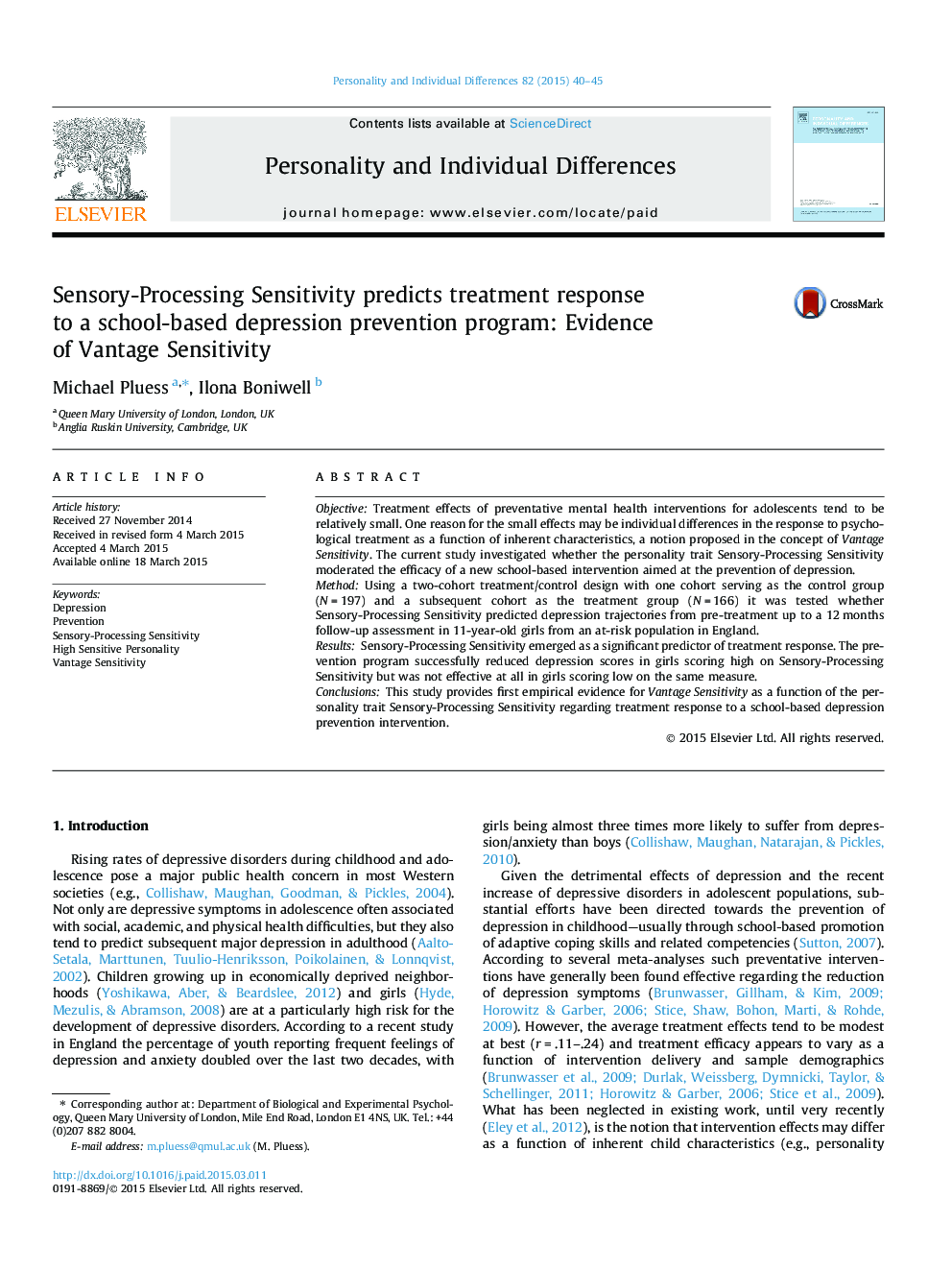| Article ID | Journal | Published Year | Pages | File Type |
|---|---|---|---|---|
| 890078 | Personality and Individual Differences | 2015 | 6 Pages |
•According to Vantage Sensitivity people differ in their sensitivity to intervention.•Sensory-Processing Sensitivity (SPS) may reflect high sensitivity to the environment.•SPS moderated treatment efficacy of a school-based prevention program.•Positive treatment effects emerged only in individuals scoring high on SPS.•Measurement of SPS may prove valuable in the prediction of treatment response.
ObjectiveTreatment effects of preventative mental health interventions for adolescents tend to be relatively small. One reason for the small effects may be individual differences in the response to psychological treatment as a function of inherent characteristics, a notion proposed in the concept of Vantage Sensitivity. The current study investigated whether the personality trait Sensory-Processing Sensitivity moderated the efficacy of a new school-based intervention aimed at the prevention of depression.MethodUsing a two-cohort treatment/control design with one cohort serving as the control group (N = 197) and a subsequent cohort as the treatment group (N = 166) it was tested whether Sensory-Processing Sensitivity predicted depression trajectories from pre-treatment up to a 12 months follow-up assessment in 11-year-old girls from an at-risk population in England.ResultsSensory-Processing Sensitivity emerged as a significant predictor of treatment response. The prevention program successfully reduced depression scores in girls scoring high on Sensory-Processing Sensitivity but was not effective at all in girls scoring low on the same measure.ConclusionsThis study provides first empirical evidence for Vantage Sensitivity as a function of the personality trait Sensory-Processing Sensitivity regarding treatment response to a school-based depression prevention intervention.
